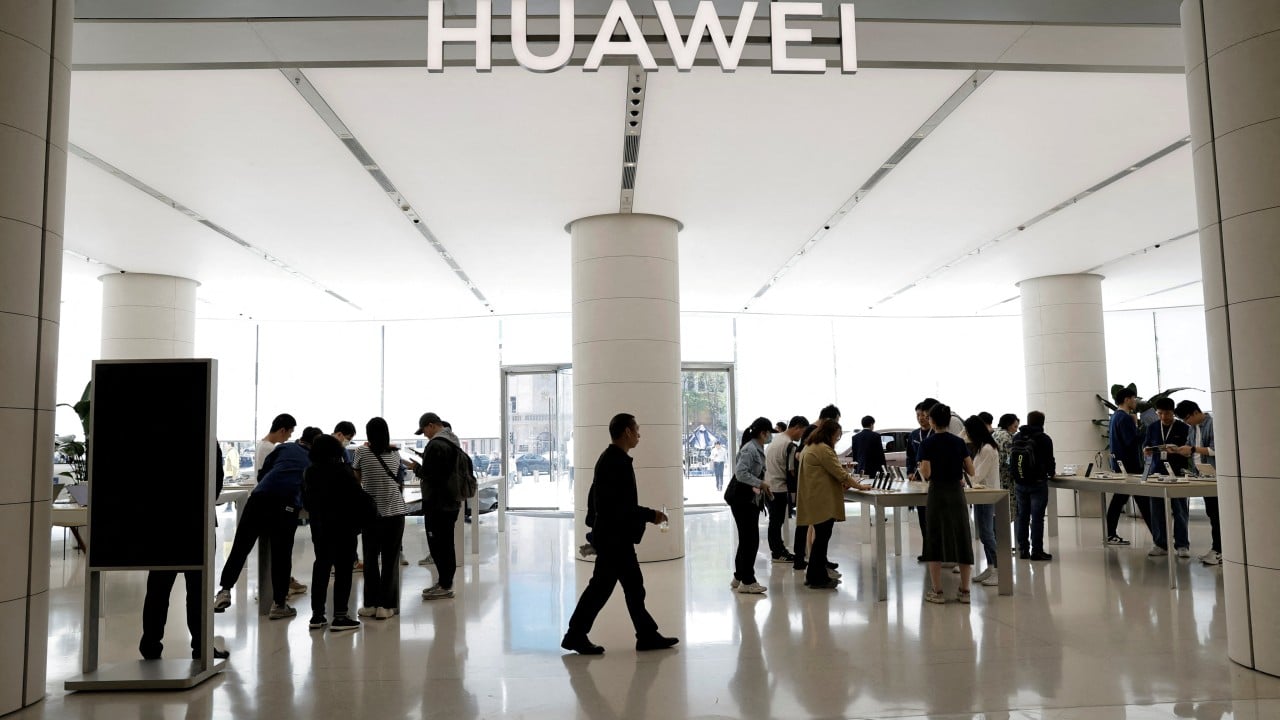Chinese telecoms gear giant Huawei Technologies has reported a 34 per cent jump in revenue for the first half of 2024, continuing a strong comeback in premium smartphones after the company overcame US sanctions.
Total revenue for the six months through June reached 417.5 billion yuan (US$58.6 billion), up from 310.9 billion yuan in the same period last year, the company said in a report released on Thursday. Its net profit margin was 13.2 per cent during the period, compared with 15 per cent a year ago.
Huawei said the results are in line with forecasts. “Moving forward, we’ll continue driving high quality across all business processes, optimising our portfolio to enhance business resilience, and building thriving ecosystems,” Huawei rotating chairman Eric Xu said in a statement.
Huawei did not offer a detailed breakdown of its different business segments, as it has previously done in half-year results. While the company is privately-held, it voluntarily discloses key financial data on a regular basis.
The company’s consumer devices, which includes smartphones, and smart car solutions businesses “grew rapidly”, while its ICT infrastructure, cloud, and digital power businesses remained steady, according to a separate statement provided to the Post.
Huawei’s growth has been gathering pace since the revival of its smartphone sales. Its latest flagship Pura 70 series that hit shelves in China in mid-April was the biggest launch since the Mate 60 series in August last year, when buzz about the handset’s China-made processor put the company on a path back to reclaiming its spot among the top domestic smartphone brands.
The Shenzhen-based company shipped 22.2 million smartphones in the first six months in the mainland market, up 55.2 per cent from the first half of 2023, according to market research firm Canalys. That helped Huawei capture 16.1 per cent of the Chinese smartphone market in the first half of 2024, placing it among the top five for three consecutive quarters.
The Pura 70’s home-made Kirin 9010 chipset, a newer version of the Kirin 9000s found in the Mate 60, was manufactured by China’s top foundry Semiconductor Manufacturing International Corporation (SMIC), according to a teardown report from TechInsights. It has shown Huawei’s resilience in defying US sanctions and solving bottlenecks in its semiconductor supply chain.
The company has also seen growth in its smart car component business amid rising sales of vehicles it developed in collaboration with domestic carmakers.
Huawei has moved its electric vehicle ambitions forward by establishing the smart car component company Shenzhen Yinwang Intelligent Technology. Huawei’s domestic carmaking partners Seres and Changan Automobile’s Avatr announced this month that they will each acquire a 10 per cent stake in Yinwang for 11.5 billion yuan.


